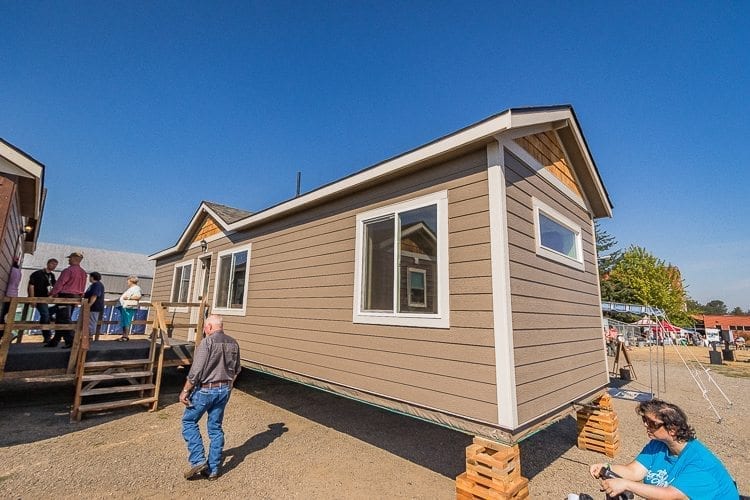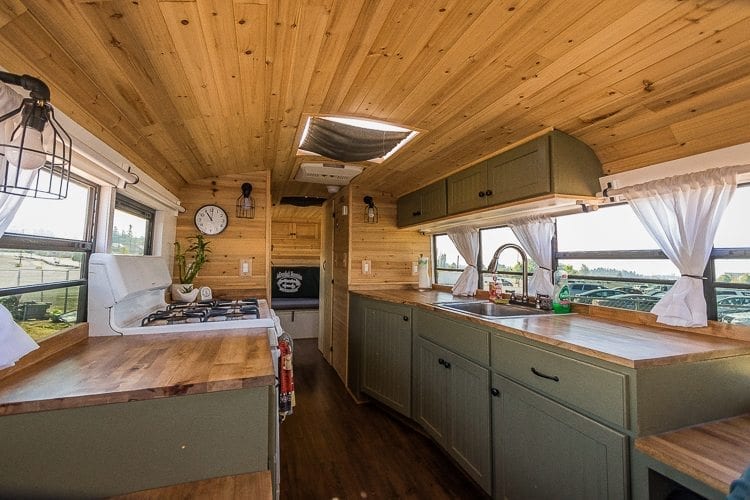Proposed code changes to go before Board of County Councilors in January
VANCOUVER — In an effort to address rising housing costs and a lack of diversity in housing choices in Clark County, county staff has recommended several changes to the housing code that will ease restrictions on Accessory Dwelling Units (ADUs) in the county.
A staff proposal to amend Clark County’s code regarding ADUs was approved by the Planning Commission during their monthly meeting on Thursday night.

According to Colete Anderson, a planner for the county, in 2016 the county’s Commission on Aging examined housing options for seniors, and found that not only does the county face housing issues for seniors, but for many in the population.
“We don’t have a lot of different types of housing,” Anderson said.
Because of this, the development code was examined, especially focusing on cottage housing and ADUs, with the aim of making the code clearer and simpler to facilitate those forms of housing, Anderson said.
Anderson said that ADUs have been part of the law since the early 1990s, when the state passed legislation separate from its Growth Management Act to address housing. The Washington State Department of Commerce drafted a model code for ADUs, and all cities in Clark County adopted that model.
The proposed changes address definitions associated with ADUs, as well as allowing for new types of ADUs and reducing the fees associated with ADUs.
The first change will specifically add the definition of “tiny homes” to the code.
Tiny homes are structures not attached to an existing house and built on a foundation. The building code has allowed for them as long as all required dwelling elements are met, and require a minimum of 150 square feet. Anderson said that “we felt the need to be very specific” by including language that clarified tiny home status in the county.
Anderson also said that if a dwelling was built on a chassis and could be towed, it is still considered an RV, not a tiny home.
The code changes also aim to define the difference between urban and rural ADUs.
In urban areas, ADUs may be attached to an existing home, such as a separate apartment or basement, or in a separate structure on the property, Anderson said.

Rural ADUs have not been allowed in Clark County, and the code changes would allow them in rural areas. However, Anderson said that they would have to be attached to an existing home, detached ADUs would still not be permitted in rural zoned areas of the county.
Anderson explained that rural ADUs will not count towards density if they are attached to the home, but a separate structure would affect density and is not allowed at this time.
Further, county staff are proposing a 75 percent reduction in fees within the Vancouver urban growth boundary to attract builders to ADUs.
Since 1993, Anderson said that within the city of Vancouver, only about 70 ADUs have been built. In the unincorporated areas of the county, only 19 have been constructed.
The code changes will also allow for a reduction in minimum cottage housing size from 500 square feet to 150 square feet. Cottage houses are small houses on separate lots that share a common green space, according to the county website.
The county held two open houses for the public in October regarding ADUs to gain feedback on the changes. Jose Alvarez, a planner for the county, said that the feedback showed “some level of interest and some level of concern.”
Some people in favor of the changes want them further altered to allow detached ADUs in urban areas. Alvarez said that as these structures would count towards rural density, the change would have to be made by the state legislature.
In urban areas, Alvarez said that some residents are concerned with the effects increased density might have on local infrastructure.
At a Planning Commission meeting on Nov. 16, local residents testified both in favor of and against the ADU code changes.
Hazel Dell resident Nick Platt expressed concerns about parking in neighborhoods if more ADUs are built. He also said that increasing ADUs would increase density and decrease livability in local areas.
“I would hate to see us rush to solve one problem in affordable housing,” Platt said, “and destroy the standard of living for everybody that already lives here.”
Sue Lintz testified in favor of the proposed changes, and said that ADUs will help better accommodate multigenerational families.
Multigenerational living is going to be “a thing of the future,” Lintz said, and “this helps with the multigenerational family.”
Members of the Planning Commission similarly were split in favor of and against the changes.
Planning Commissioner Bill Wright wanted to know why the county was planning to reduce the fees associated with ADUs.
Alvarez said that the intent is to “encourage more ADUs,” and that since so few have been built, he does not see them having an adverse effect on density or the county.
Planning Commissioner Matt Swindell also questioned the logic of fee reduction, saying that parks and streets will be the most affected by increased density, but the fee cuts would reduce funding for them, saying that the ADUs could potentially “deteriorate” the community.
Alvarez said that the proposed fee reduction could always be reversed in the future, and that the impacts of ADUs on fees and infrastructure have yet to be seen.
Planning Commissioner Robin Grimwade noted that many other communities have encouraged ADUs, and there has not been a detrimental effect. He also said that they have a “minimal financial impact.”
Commissioner Karl Johnson was in favor of the changes, noting that “we don’t have a place for people to go,” and ADUs could help with housing issues facing Clark County residents.
After the discussion, Planning Commissioner Ron Barca moved to accept the staff recommendation for ADU code revisions, with an addition that would prevent short term rentals as part of a business and that staff provide an annual report on the impacts of ADUs in the county.
The recommendation passed 4 to 3, with Bill Wright, Matt Swindell and Richard Bender voting against it.
Before it is approved into the county code, the recommendation will go before the Board of County Councilors for final approval. The board will hold a work session on Wed., Jan. 10 and a public hearing on Tues., Jan. 23 at which the board will vote on the proposed code changes.
More information can be found on the county website at https://www.clark.wa.gov/community-planning/housing-initiative.




